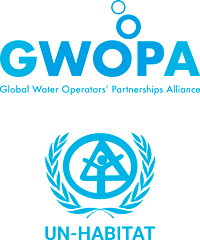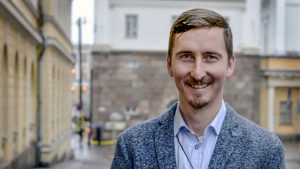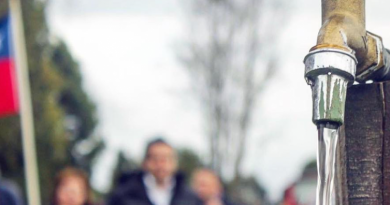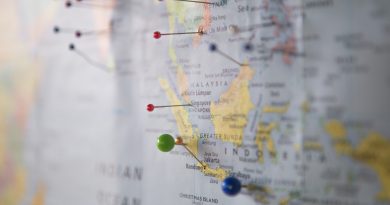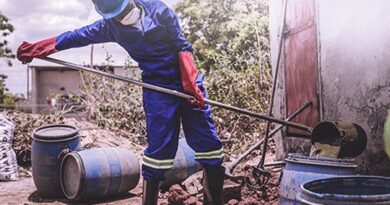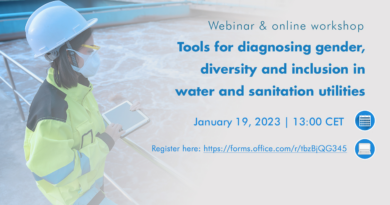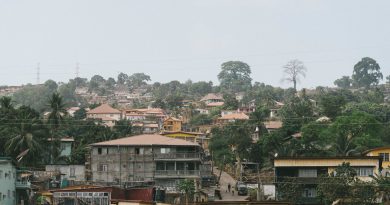Finland Launches WOPs Pilot Initiative
“We are looking at the water and sanitation sector globally. This is the way to ensure they are sustainable in the future, (…) and cooperation with other countries is the key.”
Mr. Olli-Matti Verta, Ministerial Adviser at the Ministry of Agriculture and Forestry of Finland
The launch of a new Water Operators’ Partnerships (WOPs) programme has brought attention to Finland’s approach towards the water and sanitation sector. Last Autumn 2019, the Finnish government opened a call for utilities to apply for a Finnish WOP pilot programme that will start to be implemented in Spring 2020.
The Nordic country has long been active in promoting international cooperation for WASH, however, the Finnish government noticed “there was a missing piece”.
Mr. Olli-Matti Verta, Ministerial Adviser at the Ministry of Agriculture and Forestry of Finland, explained in an interview with GWOPA that “water utilities were not involved in the government’s international water activities. We started to ask ourselves: how can we involve utilities in international cooperation? That is when we spotted the Water Operators’ Partnerships (WOPs) model.”
Mr. Verta explained that
“…we believe utilities can learn from each other about governance systems, how to operate in a sustainable way, and contribute to achieving the SDGs.”
The pilot project will support Finland’s municipally-owned water utilities to participate in Finland’s international cooperation objectives, providing mentorship to their peer utilities in lesser developed countries as well as co-creating solutions to achieve SDG6 together with developed countries. Finnish government will use the pilot to get good examples, practices and experiences from the WOPs that could allow them to establish a full-blown program in future.
A number of the pilot WOPs are already underway between Finnish utilities and partners in Vietnam, South Africa and Estonia, although final funding decisions for the WOP-pilots are still to be made. The relatively small budgets of these pilots (between 15,000 and 100,000 Euros) may be increased in a subsequent phase, if this first pilot phase is deemed successful.
There are some challenges to getting the utilities involved, nonetheless. According to the Ministerial Adviser, utilities in small towns lack resources and a tradition of international cooperation. On top of that, the Constitution of Finland states that municipalities are responsible for organizing water supply and sanitation services for their citizens which, by itself, is an enormous responsibility and time-consuming effort. Mr. Verta explained that it has been difficult for utilities to justify to municipalities why they should get involved in international cooperation. The Finnish government expects this pilot project will show why WOPs are valuable to municipalities and why they should support them, according to the Ministerial Adviser.
Mr. Verta expressed that a change of mindset needs to happen. Initiative has already been made to the Finnish government about establishing a law that would help fund decentralized cooperation, similar to “1% laws” existing in other European countries such as the Netherlands and France. But “changing the law takes a lot of time;
…we first need to motivate all parties involved in the water and sanitation sector and justify why international cooperation is important.”
One motivation for Finnish government is attracting strong professionals. The Ministerial Adviser added that a global perspective can also attract new talent. Young engineers seem to have lost interest in the sector, but Mr. Verta believes that the trend is reversible by sending the message of how addressing water challenges globally is very relevant for the future of the world: “You have huge opportunities and you can do a very meaningful job.”
GWOPA sees the new Finnish initiative as an exciting development in the growing global WOP movement, which has also seen new WOP programmes recently launched in the Netherlands, Germany and the European Union. The UN body for WOPs will also support the Nordic country’s new partnership activities by sharing best practice guidance drawn from WOPs around the world and operational tools that can help the partnering utilities share knowledge. Finland’s efforts to create a sustainable political and funding base for WOPs is also exemplary and can be a source of inspiration to other European countries who would like to enable their public water utilities play a bigger role in helping reach the Sustainable Development Goals internationally.
Finland is keen to collaborate with other European countries to boost WOPs. Mr. Verta believes the 4 yearlong EU WOP Programme, developed by the EU DEVCO and GWOPA/UN-Habitat, is a very good opportunity to do so: “We were happy to notice there is an ongoing discussion that is very in line with ours in Finland.
